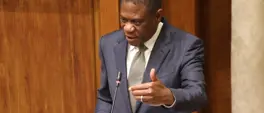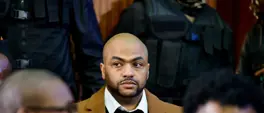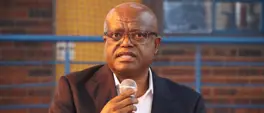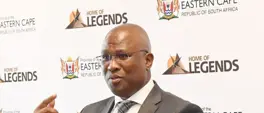US colleges look to recruit (and financially assist) South African students
Amy Fraser
30 August 2024 | 7:11More than 2700 South African students are studying at colleges and universities across the US.
Pippa Hudson interviews Stacey Barrios, the US Consulate’s Public Affairs Officer.
Listen below.
Have you considered studying in the United States but weren’t sure where to start? Now’s your opportunity to explore your options.
Next Thursday (5 September), the US Consulate will host a US College Fair at the College of Cape Town’s Crawford Campus.
Students will have the chance to meet representatives from up to 40 US colleges, who will present their programs and answer questions.
More than 2700 South African students are studying at colleges and universities across the USA.
However, Barrios believes this number could and should be higher.
RELATED: Why South African students are choosing to study abroad
"Our goal is to increase those numbers and to make sure there are more South Africans who know about more opportunities in the United States."
- Stacey Barrios, Public Affairs Officer – US Consulate
FUNDING
Although studying abroad might seem straightforward, the reality is that the cost of getting there can be prohibitively expensive for many.
While US government agencies do not provide grants or loans to international students, many universities and private institutions offer financial aid, according to Barrios.
At the consulate, one of their key missions is to help students find institutions that match their academic goals and areas of interest, and to assist them in securing funding, she adds.
"There are a number of universities and colleges in the United States who are interested in South African students and who will offer financial assistance directly."
- Stacey Barrios, Public Affairs Officer – U.S Consulate
REQUIREMENTS
According to Barrios, admission requirements are not solely based on academic performance or test scores.
Instead, universities look for individuals who can contribute in diverse and meaningful ways.
This might include participating in student governance, community service, or leveraging other skills and interests.
Barrios notes that the admission criteria are flexible, allowing students to explore multiple fields of study, even if they seem unrelated.
Additionally, students do not need a defined long-term goal when they enter university.
In the US, students may start with a major or minor and adjust their course of study as they go along.
"You're not required to be on a single path...You really can train and explore all parts of your brain, all parts of your interests."
- Stacey Barrios, Public Affairs Officer – U.S Consulate
Scroll up to the audio player to listen to the interview.
Get the whole picture 💡
Take a look at the topic timeline for all related articles.
















